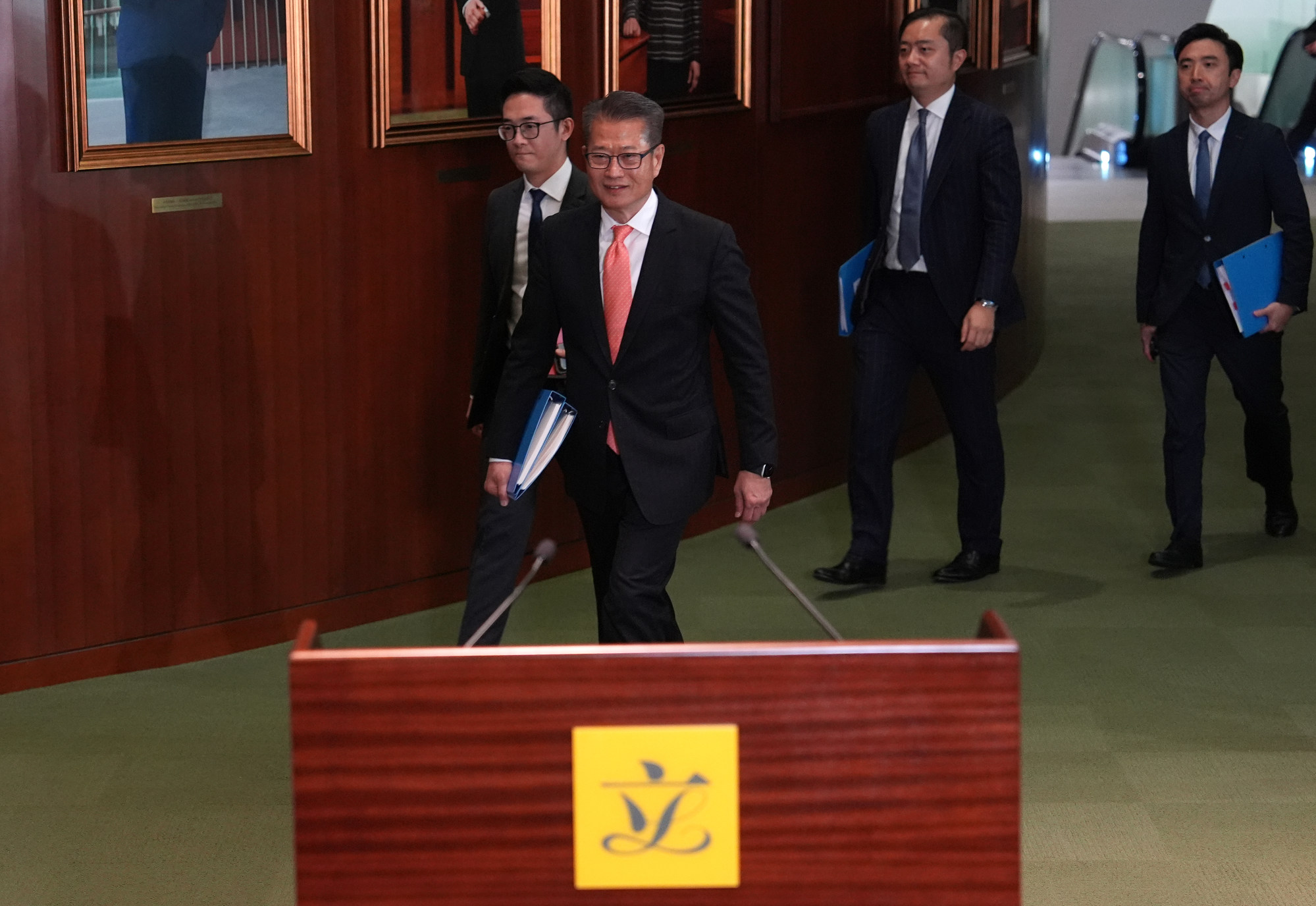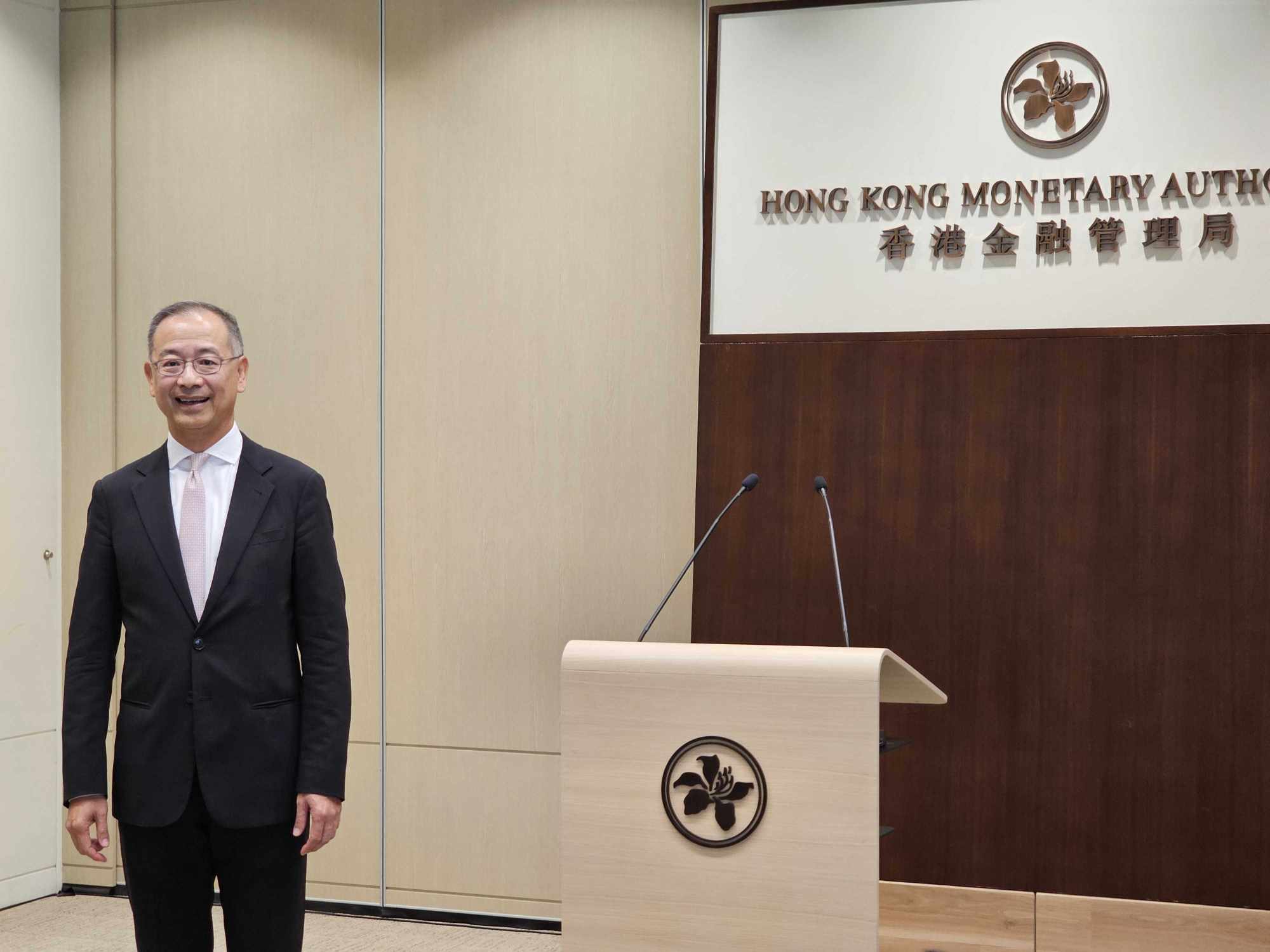
Hong Kong relaxes decade-old lending curbs, granting more mortgages to homebuyers and offices to bolster city’s ailing property market
- Homes worth less than HK$30 million (US$3.83 million) will be entitled to 70 per cent mortgage financing, compared with the previous 60 per cent credit
- Residential properties that are valued at more than HK$35 million, considered luxury homes in Hong Kong, will be entitled to 60 per cent mortgage, from 50 per cent
Hong Kong’s monetary authority has relaxed the city’s decade-old lending curbs, granting more mortgage borrowing to homebuyers, rental property and offices, after high interest rates turned the city’s real estate bull run into a slump.
Starting immediately, homes valued at less than HK$30 million (US$3.83 million) will be entitled to 70 per cent mortgage financing, compared with the previous rule that granted only 60 per cent credit to flats valued between HK$15 million and HK$30 million, according to the Hong Kong Monetary Authority (HKMA).
Residential properties that are valued at more than HK$35 million, considered luxury homes in Hong Kong, will be entitled to 60 per cent mortgage, from 50 per cent previously, according to the HKMA. Properties between HK$30 million and HK$35 million are now eligible for loan-to-value ratios between 60 and 70 per cent.
For rental properties that are not used by owners, the maximum loan-to-value ratio will be increased to 60 per cent, from 50 per cent. Extra leeway will also be given to offices, retail shops and industrial buildings, where the loan financing ratio will be lifted to 70 per cent, from 60 per cent.

“After the relaxations, almost all the countercyclical macroprudential measures have been rolled back to 2009 when they were first introduced,” HKMA CEO Eddie Yue Wai-man said in a media briefing after the announcement.
“HKMA will consider if it needs to make any more adjustments based on the property market performance and local economic situation. Even after the relaxation, banks in Hong Kong remain resilient and have strong capital to fight against potential risks.”
Hong Kong home prices to rebound in 2025, office market a concern: Goldman
HKMA has tightened the city’s mortgage and the government has added in levy rules several times since 2009 to tamp down a housing bull run, fuelled by the cheap funding that was unleashed by global central banks in the aftermath of the 2008 Global Financial Crisis. The measures included capping the loan-to-value ratio to compel buyers to put more money up front to deter speculators, and increasing the stamp duty on second homes.
The restrictions, combined with rising interest rates and the economic malaise over the pandemic period, stopped the bull run in its tracks, with median home prices plunging by about 21 per cent from their 2021 peak. Prices fell 7 per cent last year, dropping another 1.6 per cent last month.
Transactions of residential and non-residential property shrank by about 4.5 per cent last year, according to the HKMA’s data. Offices also suffered, with the average prices of commercial property falling by about 7 per cent last year, while 16 per cent more Grade A offices stood empty.

Those measures began to be relaxed in July 2023, when the HKMA added 10 percentage points to the 60-per cent mortgage allowance for homes valued below HK$15 million to bolster Hong Kong’s post-pandemic economic growth.
The HKMA will also suspend a requirement for mortgage borrowers to undergo a stress test, which entailed assessing their ability to repay if interest rates were to rise by 2 percentage points from the prevailing level.
The HKMA said it would also roll back the financing caps for property development projects from 50 per cent of the expected value to the 60 per cent cap imposed in June 2017. In addition, the authority will lift the existing requirement for banks to set aside additional capital for exposure to the mortgage financing provided by developers.
HKMA deputy CEO Arthur Yuen Kwok-hang said the only mortgage measure introduced since 2009 that remains in place after today’s relaxation is for luxury properties of over HK$30 million, which can now get mortgage loans for only up to 60 per cent of their value. Before 2009, all properties had a maximum loan-to-value ratio of 70 per cent.
“Ninety-eight per cent of new mortgage loans are for properties valued below HK$30 million, so the relaxation has already covered most borrowers,” Yuen said in a media briefing on Wednesday.
“The HKMA needs to keep the restrictions on luxury properties based on risk-management considerations, as the sector imposes higher risks for banks than other properties.”
Even though property prices and transactions have gone down, the asset quality of mortgage loans remains low, at 0.06 per cent, according to Raymond Chan, executive director of banking supervision at the HKMA.
“When the property [market] rose, HKMA had to introduce measures to control the risks so it is reasonable to remove the curbs when prices and transactions now go down,” he said. “We do not think the relaxations will increase the risks faced by banks. If we do not relax the curbs now, the HKMA will not have room to reinstall the policies in the future when the property market turns too hot again.”

